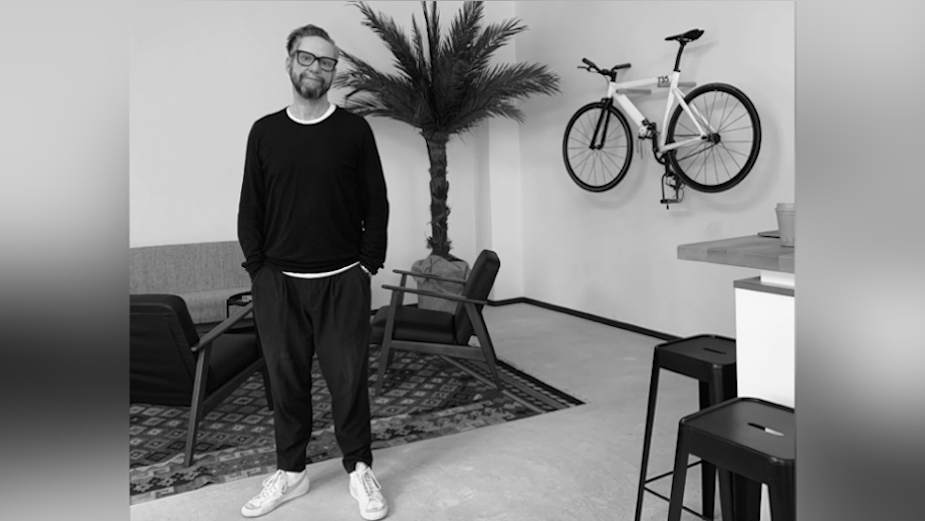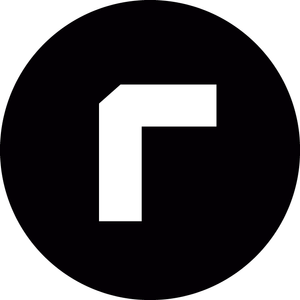
“The Pandemic Forced Us All to Be More Creative"

REKORDER, the Berlin-based film and photography creative production studio, is proud to support LBB. Over the upcoming months, as part of the sponsorship of the German Edition, we will celebrate creativity and introduce some of the most innovative and creative minds in the industry.
In this conversation we speak with Ton Hollander, the Hamburg-based partner and CCO of Optimist. Here, Ton reflects on his creative journey, building Optimist from the ground up in Europe, and why every day still starts with a coffee and a cigarette…
LBB> First things first, when did you first realise you were 'a creative'?
Ton> I always thought that I’m a creative, but actually becoming a creative is something different. For me, that moment came the first time I got paid for something I made.
LBB> You studied at the Berlin school of creative leadership. What did you learn from that experience, and how does it affect your work today?
Ton> Life is a constant process of learning. Especially in a rapidly evolving business as ours. You need to be open-minded and conscious not just of exchanging ideas between people within the industry, but even more outside the industry, to find useful insights. You can be inspired by it, copy it, or even reject it. My participation in the Berlin School of Creative Leadership seminar in New York motivated me most of all. I learned how it could be done but also how it shouldn’t be done - at least from my perspective!
LBB> How would you describe an average day in your role as CCO at Optimist?
Ton> Optimist was founded 10 years ago in Los Angeles, and entered the European market only two years ago. We had an overwhelming start by winning the international Škoda account before we even got settled! This meant going from nothing to setting up a dedicated agency of 50 people in Prague within six months. Besides overlooking the output of the Prague office I also work on extending the business and the roll-out of the Optimist brand in other European markets. We currently have offices in Hamburg, Berlin, Amsterdam, and London. Despite all the challenges and upheaval the industry is currently facing, my day always starts with a coffee and a cigarette before opening my laptop. But believe me, nowadays no day is the same.
LBB> You're currently based in Hamburg with Optimist - do you find that the city has a distinct creative culture from Berlin? And if so, in what way?
Ton> Today it’s possible to be present without being physically present, something which of course has been accelerated even more due to the pandemic. Currently, I spend most of my time between Berlin and Prague.
All of the locations I’ve worked in somehow have their own creative culture. Hamburg is mainly dominated by a traditional advertising background, with it being THE advertising city in Germany. I think it’s similar for London in the UK and Amsterdam in the Netherlands. Berlin doesn’t have this background. Its creativity is much broader. The vibrance of Berlin had and still has a huge international attraction for artists, photographers, filmmakers, designers, start-ups, you name it. The mentality of Berlin and its history created a unique, internationally-driven creative culture all of its own.
LBB> And looking at the German industry more broadly, in what ways is your creative culture different from other European countries - and how has it evolved over the past few years?
Ton> Well, I’m originally from the Netherlands and moved to Germany in 2000. The first thing that struck me was the involvement of the client in the creative process. The Germans are known for their accuracy and precision - so I should have seen that coming! In general, however, I see that globalisation and digitalisation has made creative cultural differences more vague, and harder to see. Although you do find that cultural cliches are somehow still in place.
LBB> How do you see the pandemic changing the industry more broadly? Are there any new habits or ideas you have picked up which you feel will become permanent?
Ton> As Johan Cruyff once said: Every disadvantage has its advantage. If there is a positive to be taken from the pandemic, I think it would be the way people work. It forced us to leave the beaten path, and ultimately it forced us all to be more creative. I see remote working, for example, having a positive impact on work-life balance. It gave people a certain freedom on how they approached their projects. It gave them more freedom, but also more responsibility. For us it has had a positive effect on the outcome and quality of the work. It also increased efficiency - traveling 6 hours for a 1 hour meeting is the complete opposite of efficiency. And that’s before we even mention the environmental aspect.
LBB> Looking back over your own career, are there any projects or campaigns that stand out as especially significant? And why?
Ton> It’s hard to pick a single project. In 2012 we created ‘Off-Road’ for the car brand Smart. It showed the city car failing in rough, off-road terrain, making the point that the Smart car makes as much sense in off-road terrain as a SUV in a dense city environment. Highlighting the disadvantages of the car was quite a shock for the marketeers at Daimler - and so it took quite some persistence and fighting to make the film happen. At that time German creativity was on the rise, but not in film. ‘Off-Road’ won two gold lions in film at the Cannes festival where it also won the first ever Creative Effectiveness Lion for Germany. It even made it in the Super Bowl. It set a benchmark in automotive advertising and convinced the client to make decisions more emotionally, not just rationally.
Above: The 'Off-Road' campaign for Smart won the first ever Creative Effectiveness Lion for Germany.
LBB> And what advice would you give any young creative looking to get into the industry today?
Ton> Creativity is finding unconventional solutions for a problem. Understand the problem, be unconventional, question the status quo, be crazy, be persistent.
But most of all - choose your mentor wisely.
LBB> Finally, there's understandably a lot of negativity in the world at the moment - but what's keeping you inspired day-to-day?
Ton> What keeps me inspired is simply culture, in all its forms. Nothing is more inspiring than culture, no matter how niche it may first appear.













